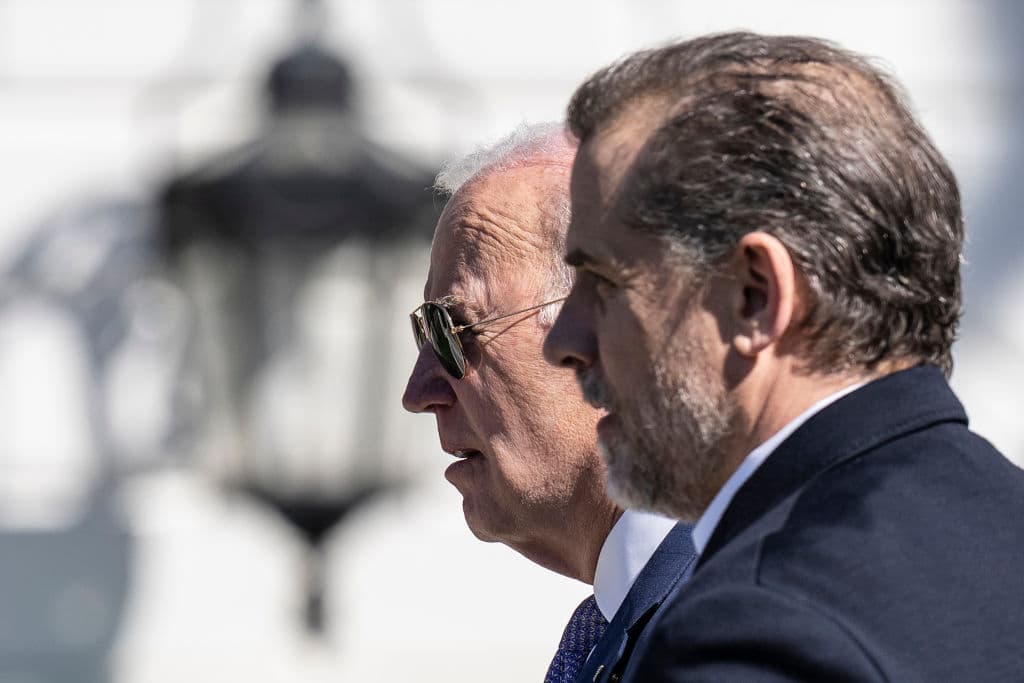Here’s a Unifying — and Constitutional — Move for President Biden
The 46th president is reportedly furious at Attorney General Garland for siccing a special counsel on his recovering son.

President Biden is frustrated that a criminal case is being pursued against his son Hunter and furious that Attorney General Garland sicced a special counsel on the First Son in the first place. “Several people close to the elder Biden portrayed him as having been deeply anxious for months about his son’s legal fortunes and frustrated at the appointment of a special counsel,” Politico reports. It says that Mr. Biden privately singles out Mr. Garland for criticism.
On this head, we’re with Mr. Biden père. It is constitutionally outrageous that an attorney general, acting on the authority vested in Mr. Biden, is pursuing a case that Mr. Biden doesn’t want to be pursued. Under the Constitution, the executive power is vested solely in the president. The Constitution says that he shall take care that the laws are faithfully executed. That leaves it up to the president to decide whether to pursue charges against his own son.
We’ve been making this point, in one newspaper or another, going back to President Nixon and the events leading up to what is called the Saturday night massacre. It’s a long train of powder, but the nub of it is that as the scandals of Watergate welled up around the 37th president, he nominated Elliot Richardson to be attorney general. To get confirmed, Richardson made a deal with the Congress that he wouldn’t fire a special prosecutor except for cause.
It was a shocking moment, undermining in a deal with Congress the president’s authority to fire any officer for any reason, with or without cause. Nixon was no dummy. When Archibald Cox was brought in as special prosecutor, Nixon soon saw that he was going to go after the president. So he ordered Richardson to fire Cox. Richardson couldn’t do that because of his deal with Congress. So he quit. It fell to Robert Bork, who’d made no deal, to do the deed.
Ever since then, out of control special prosecutors of various sorts have been sowing division and bitterness in our politics — against Presidents Nixon, Reagan, George H.W. Bush, and Clinton. The independent counsel in the George H.W. Bush years, Lawrence Walsh, became bitterly political and, on October 30, 1992, but days before the election, indicted Bush’s defense secretary, Caspar Weinberger. Bush Senior turned around and pardoned him.
In the nakedness of its politics, the moment reminds us of Special Prosecutor Jack Smith trying to force a trial of President Trump, just before the Super Tuesday primaries. To be fair to the special or independent counsels, their positions have inherently powerful incentives to be aggressive. Even an alabaster saint couldn’t resist, it’s been quipped. No wonder the independent counsel law was allowed to expire, unrenewed and unmourned by either party.
Which brings us back to Mr. Biden. He wasn’t the first president who had a son with what we now call a substance abuse problem. That was John Adams, whose son Charles drank himself to death — a loss that had brought what John Adams had called “the greatest Grief of my heart and the deepest affliction of my Life.”* It’s hard to think that Adams wouldn’t have harbored a certain sympathy for the frustration nursed by the 46th president.
The best answer Mr. Biden has to General Garland would be to use his pardon power in favor of his sole surviving son. Mr. Biden then could pardon himself and announce he won’t seek a second term. He could offer a pardon to President Trump, too, on the same condition. Whether Mr. Trump would take such a pardon is hard to say. On Mr. Biden’s part, though, the gesture would be unifying, Solomonic, and, begging your pardon, constitutional.
_________
* Per James Grant’s biography of the 2nd president, “John Adams: Party of One.”

